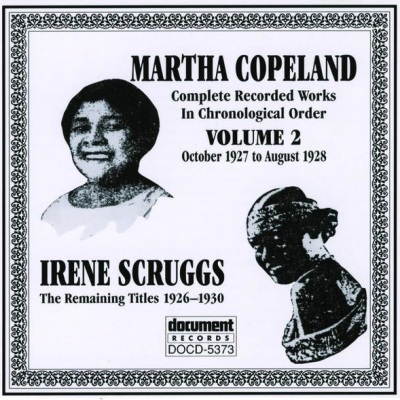
Martha Copeland Vol. 2 (1927-1928)
One of many early blues and jazz women who were overshadowed and ultimately eclipsed by Ma Rainey, Ethel Waters, and Bessie Smith, Martha Copeland made about three dozen recordings during the 1920s that were reissued seven decades later on two CDs by the Document label. The second volume traces her Columbia recording activity from October 1927 to August 1928. Her little backing group, billed as her Smokey City Trio on December 6, 1927, was named after Copeland's home town of Pittsburgh, PA. "Wylie Avenue Blues" refers to the main drag in the Lower Hill District where the city's African-American population was concentrated. Her pianists during this period were Porter Grainger (tracks one through six); Rube Bloom (on "I Can't Give You Anything But Love" and "My Daddy Can't Do Nothin' Bad"); James P. Johnson (on "Somethin' Goin' on Wrong" and "Desert Blues"); and J.C. Johnson, who is joined by cornetist Bubber Miley on "Mama's Well Has Done Gone Dry" and "I Ain't Your Hen Mister Fly Rooster." The second half of this compilation holds a smattering of records cut by St. Louis blues woman Irene Scruggs between April 1926 and August 1930. On "Home Town Blues" and "Sorrow Valley Blues," Scruggs was backed by King Oliver's Dixie Syncopators, a rough-edged little group that included trombonist Kid Ory and clarinetist Albert Nicholas; at the same session, Oliver's band backed Georgia Taylor as she sang "Jackass Blues." Scruggs is heard with guitarist Lonnie Johnson on tracks 15 and 16, and the disc closes with five titles recorded for Gennett in Richmond, IN, at the end of the summer of 1930. Anyone seeking more recordings by Irene Scruggs ought to investigate her collaborations with Blind Blake and Little Brother Montgomery, all dating from 1930.
